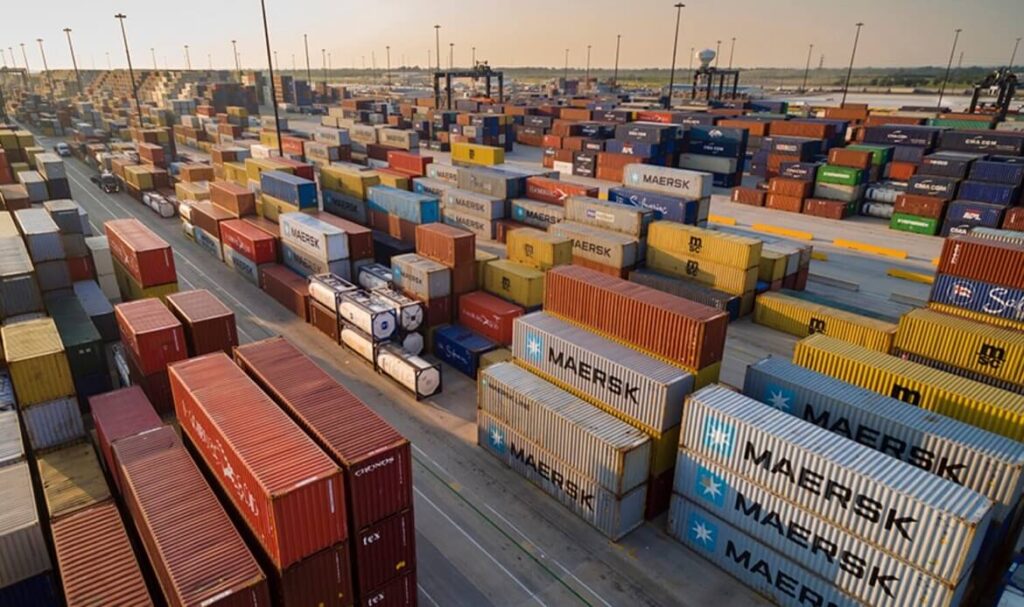By Muhammad Asif Noor
The announcement by President-elect Donald Trump to impose sweeping tariffs on major U.S. trading partners has drawn sharp criticism from international leaders and economists alike.

With promises to impose as high as 25% on North American imports and up to 60% on Chinese goods, Trump frames these measures as efforts to address illegal immigration, drug trafficking, and trade imbalances. However, the far-reaching implications of such actions extend well beyond their stated objectives. This approach risks undermining the delicate framework of global trade, disrupting alliances, and creating ripple effects that will challenge economic and geopolitical stability for years to come.
At the core of Trump’s tariff strategy is a vision of economic nationalism, one that seeks to protect domestic industries and assert American sovereignty in global commerce. While this rhetoric resonates politically, its practical implementation is fraught with complexities. Tariffs, by their nature, act as taxes on imports, increasing costs for domestic consumers and businesses reliant on foreign goods. In Trump’s first term the U.S. consumers faced the significant brunt of tariffs imposed on Chinese products, with price increases trickling down to everyday goods. Repeating this strategy on a broader scale risks fueling inflation, particularly in a fragile economic environment already grappling with post-pandemic uncertainties.
Moreover, these tariffs jeopardize deeply integrated supply chains, particularly those in North America. The United States, Mexico, and Canada share a tightly woven economic relationship under the USMCA, where industries like automotive manufacturing depend on cross-border collaboration. Imposing steep tariffs threatens this economic integration, driving up costs for manufacturers and diminishing the competitiveness of North American products on the global stage. The interconnected nature of modern trade means that such disruptions will have far reaching implications across industries, slowing innovation and reducing efficiency.
China, as a constant target of U.S. tariffs, presents a different challenge. While Beijing has historically relied on exports to the U.S. as a cornerstone of its economic model, recent years have seen a strategic pivot. By diversifying its trading partners and investing in alternative markets, China has mitigated its reliance on the American market. However, further escalation risks destabilizing key sectors of its economy, particularly those tied to manufacturing and exports. There will be retaliatory measures as a response to these tariffs and might intensify the trade war creating further challenges to global trade.
Beyond the immediate economic impact, Trump’s tariff strategy raises serious questions about the role of trust and predictability in global trade. The international trade system, governed by agreements and institutions like the World Trade Organization (WTO), relies on a shared commitment to rules and norms. Unilateral actions like sweeping tariffs undermine this framework, signaling to other nations that agreements can be disregarded for political expediency. This erosion of trust has profound implications, incentivizing countries to pursue bilateral or regional agreements at the expense of multilateral cooperation. The resulting fragmentation of the global trade system risks marginalizing smaller economies that lack the leverage to negotiate favorable terms.
The threat and later actions might be expected to further strain diplomatic ties with key partners like Canada and Mexico. Both are important partners under the USMCA where they have reacted with concern and frustration. Similarly adding the European Union along with the other trading partners floated as a potential target for tariffs, represents another critical dimension of this strategy. Alienating European allies’ risks further isolating the United States in the global arena, complicating efforts to build coalitions on shared priorities such as addressing China’s trade practices or responding to geopolitical threats.
Perhaps the most significant consequence of these tariffs is their potential to accelerate the decline of the rules-based global economic order. The WTO, already weakened by years of criticism and inaction, faces further marginalization as major economies resort to unilateral measures. This shift erodes the mechanisms that have historically provided stability and predictability in international trade, increasing the risk of disputes escalating into broader economic conflicts. In the absence of a strong multilateral framework, the global economy risks devolving into competing blocs, where power dynamics and economic leverage dictate outcomes.
Ultimately, Trump’s tariff strategy reflects a broader trend of weaponizing trade for political and strategic purposes. While such measures may offer short-term gains or symbolic victories, their long-term impact is far more destabilizing. The disruption of alliances, the fragmentation of global trade systems, and the erosion of trust in multilateral institutions create a precarious environment where economic stability and cooperation are increasingly elusive.
As the world braces for the implementation of these tariffs, the need for a recalibrated approach to global trade has never been more urgent. Rather than pursuing unilateral actions, the United States should leverage its influence to strengthen multilateral institutions, address legitimate trade grievances through diplomacy, and rebuild trust with its allies. Only by reaffirming its commitment to a rules-based order can the U.S. ensure that its economic policies contribute to global stability and shared prosperity. Trump’s tariffs may be a bold statement, but their consequences demand a thoughtful and collaborative response that transcends short-term political calculations.
Author: Muhammad Asif Noor – Founder of Friends of BRI Forum, Senior Advisor to Pakistan Research Centre at Hebei Normal University in China, Co-Founder of the Alliance of China-Pakistan Research Centres, and Senior Fellow at the Centre for CPEC Studies at Kashi University in China.
(The views expressed in this article belong only to the author and do not necessarily reflect the views of World Geostrategic Insights).







